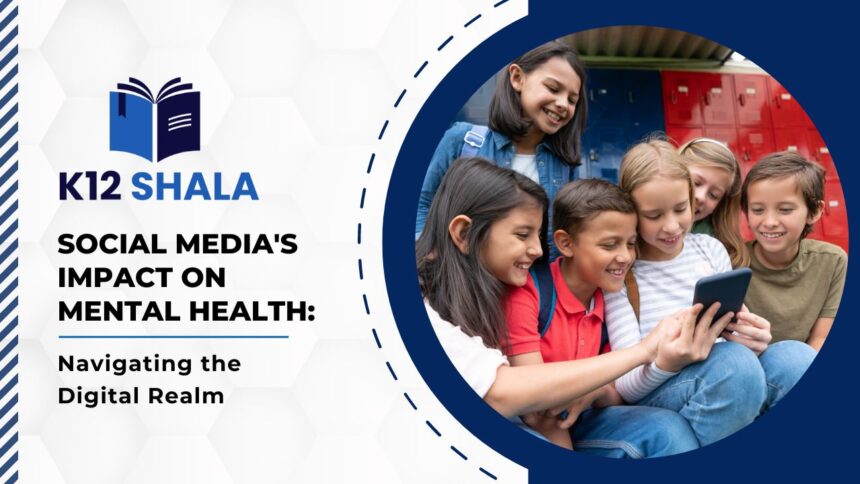Introduction to Social Media and its Prevalence in Society
Welcome to the digital age, where social media has become an integral part of our daily lives. From scrolling through Instagram feeds to tweeting about our thoughts, it’s hard to imagine a world without these platforms. But as much as social media connects us, it also impacts our mental health in ways we may not even realize. Let’s dive into the realm of social media and explore its effects on our well-being.
The Negative Effects of Social Media on Mental Health
Social media has become an integral part of our daily lives, offering a platform for connection and communication. However, along with its benefits, social media also brings about negative impacts on mental health.
One common issue is the comparison trap. Scrolling through carefully curated feeds can lead to feelings of inadequacy and envy as we compare our lives to others’ highlight reels.
Cyberbullying is another dark side of social media. The anonymity it provides can embolden individuals to engage in hurtful behavior online, causing emotional distress and psychological harm.
The fear of missing out (FOMO) induced by constant updates on social platforms can trigger anxiety and loneliness in individuals who feel left out or disconnected from the virtual world they observe.
These negative effects emphasize the importance of being mindful of our social media usage and cultivating a healthy relationship with technology for better mental well-being.
A. Comparison and Envy
In the digital realm, social media has become a breeding ground for comparison and envy. Scrolling through carefully curated feeds can lead to feelings of inadequacy as we compare our lives to the highlight reels of others. It’s easy to fall into the trap of constantly measuring ourselves against unrealistic standards set by strangers online.
The constant exposure to picture-perfect lifestyles can spark jealousy and envy, eroding our self-esteem and mental well-being. The pressure to showcase only the best moments of our lives can create a distorted sense of reality, fueling a cycle of comparison that is hard to break free from.
It’s important to remember that what we see on social media is often just a fraction of someone’s life, filtered through rose-colored glasses. Practicing gratitude and focusing on our own journey can help combat feelings of comparison and envy in the digital age.
B. Cyberbullying
Cyberbullying, a dark shadow cast by the digital age, can wreak havoc on mental health. Behind screens and keyboards, individuals feel emboldened to spread hate and cruelty with anonymity. The impact of hurtful words and actions online can be devastating, leading to feelings of isolation and worthlessness.
Victims of cyberbullying often find themselves trapped in a relentless cycle of fear and anxiety. The constant barrage of negative messages can erode self-esteem and confidence, leaving lasting emotional scars. While the virtual nature of cyberbullying may seem distant, its effects penetrate deep into one’s psyche.
It is important for individuals to recognize the signs of cyberbullying and seek help when needed. Creating safe online spaces where kindness prevails is crucial in combating this toxic behavior. Remember, words have power – choose to uplift others instead of tearing them down in the digital realm.
C. Fear of Missing Out (FOMO)
Have you ever felt that sinking feeling in your stomach when scrolling through social media and seeing friends having fun without you? It’s called the Fear of Missing Out (FOMO), and it’s a common experience in today’s digital age. The constant stream of posts showcasing seemingly perfect lives can trigger feelings of inadequacy and loneliness.
Social media platforms often highlight only the exciting moments, leading us to compare our everyday lives to others’ curated highlights. This comparison game can fuel FOMO, making us feel like we’re not measuring up or missing out on all the fun.
The fear of missing out is not just about events or parties; it extends to experiences, achievements, and even material possessions. The pressure to keep up with the online narrative can be overwhelming, causing anxiety and stress.
Recognizing when FOMO is creeping in is the first step towards regaining control over your mental well-being. Remember that what people choose to share online is just a snippet of their reality – everyone faces challenges behind closed doors.
Finding balance between staying connected on social media and prioritizing real-life experiences is key to combating FOMO. Take breaks from social platforms, practice gratitude for what you have, and focus on living authentically rather than chasing validation through likes or followers.
The Positive Effects of Social Media on Mental Health
Social media isn’t all doom and gloom when it comes to mental health. In fact, there are positive aspects that often get overlooked amidst the negativity. One key benefit is the sense of support and community that social platforms can provide. Whether it’s connecting with like-minded individuals or finding a supportive online space, social media can offer a sense of belonging and understanding.
Another positive impact of social media on mental health is the access to information and resources. From mental health awareness campaigns to educational content on coping mechanisms, social platforms can be valuable sources of knowledge for those seeking help or guidance. With just a few clicks, users can find helpful tips, professional advice, and even online therapy options.
In today’s digital age, harnessing the positive potential of social media for better mental well-being is crucial. By engaging with supportive communities and utilizing available resources wisely, individuals can navigate the digital realm in a way that promotes positivity and growth in their mental health journey.
A. Support and Community
In the vast digital landscape of social media, one of its positive impacts on mental health is the ability to foster a sense of support and community. Users can connect with like-minded individuals from around the world, creating virtual spaces where they feel understood and accepted.
Through online groups and forums, people facing similar challenges can find solidarity and empathy from others who have walked in their shoes. This shared experience can provide comfort and reassurance in times of need, reducing feelings of isolation or loneliness.
Social media platforms also serve as a platform for raising awareness about mental health issues and promoting important conversations surrounding well-being. By sharing stories and resources, users can educate themselves and others, ultimately breaking down stigmas and barriers associated with mental health struggles.
The power of support networks on social media cannot be understated; they have the potential to uplift spirits, offer guidance, and remind individuals that they are not alone in their journey towards mental wellness.
B. Access to Information and Resources
Access to information and resources on social media can be a game-changer for mental health. Whether it’s finding tips for managing anxiety or connecting with experts in the field, the possibilities are endless.
From online support groups to informative articles, social platforms offer a wealth of knowledge at our fingertips. Feeling overwhelmed? A quick scroll through your feed might lead you to helpful coping strategies or self-care techniques.
Moreover, following mental health advocates and organizations can provide valuable insights and inspiration. The power of sharing experiences and learning from others is unparalleled in the digital age.
So next time you’re feeling stuck or unsure about where to turn, remember that social media isn’t just about likes and comments – it’s a valuable tool for accessing the information and resources you need to prioritize your mental well-being.
Strategies for Managing Social Media Use for Better Mental Health
In the fast-paced digital world we live in, managing our social media use is crucial for maintaining good mental health. One effective strategy is setting boundaries by limiting screen time and creating designated tech-free zones in your home. This can help reduce feelings of overwhelm and anxiety caused by constant connectivity.
Another helpful tip is to curate your feed by unfollowing accounts that trigger negative emotions or comparison. Instead, follow pages that promote positivity, inspiration, and self-care. Remember, you are in control of what content you consume online.
Engage mindfully with social media by taking regular breaks and being present in the moment. Practice moderation and avoid mindlessly scrolling for hours on end. It’s important to prioritize real-life interactions over virtual ones.
Prioritize self-care activities such as exercise, meditation, hobbies, and spending time with loved ones offline. Balancing your online presence with meaningful offline experiences can greatly benefit your overall well-being.
Conclusion
In a world where social media has become an integral part of our daily lives, it’s crucial to acknowledge both its positive and negative impacts on mental health. While comparison, cyberbullying, and FOMO can contribute to feelings of inadequacy and anxiety, the sense of support, community, and access to information that social platforms provide can be invaluable.
It’s essential for individuals to be mindful of their social media use and practice healthy habits such as limiting screen time, curating a positive feed, setting boundaries, seeking help when needed, and prioritizing real-world connections. By being aware of the effects that social media can have on our mental well-being and taking proactive steps to manage them effectively, we can navigate the digital realm in a way that promotes better mental health overall.
Remember: Social media impact is significant but manageable with awareness and self-care practices. Embrace the positives while safeguarding against the negatives for a healthier relationship with your online presence.










